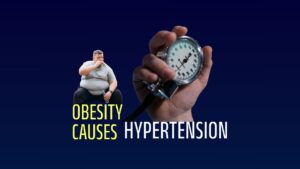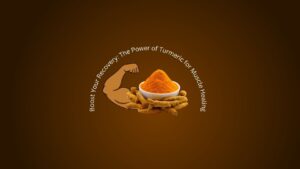
Nutrients Necessary for Hair
Hair loss is a common problem that many people face nowadays, and it can be caused by dietary changes or inadequate nutrition. When you make rapid and drastic changes in your diet, it may lead to nutrient deficiencies that can affect the health of your hair. It’s important to ensure that your body is getting essential nutrients like iron, zinc, biotin, protein, and specific vitamins such as vitamin D and vitamin B12.
Crash dieting or extreme calorie restriction can also lead to telogen effluvium, where hair follicles enter the dormant phase and subsequently shed due to stress. This stress reaction is caused by the body considering abrupt weight loss as stressful, which can cause hair loss. It’s important to note that hair loss can also occur after bariatric surgery due to the physiological stress brought on by weight reduction and its impact on the cycle of hair development.

There are 3 phases of the Hair Development Cycle:
The three phases of the hair development cycle are the active phase (anagen), the transitional phase (catagen), and the dormant phase (telogen). At any given time, 10% of our hair is typically in the resting phase. Rapid weight loss following surgery puts the body under physiological stress, which causes more hair to enter the resting phase. The average resting phase duration is 3+ months, and substantial hair loss often starts 3–6 months following surgery at the conclusion of this period.
Nutrient insufficiency is another factor. Reduced consumption of macronutrients (proteins, fats, and carbs) is a result of smaller serving sizes. When resources are scarce, they are initially sent to the body’s essential organs, leaving hair—which mostly serves a cosmetic purpose—nutritionally deficient.
Nutrients your Hair needs are:
Water
All cells in the body, including hair follicles, require water to function. 10-15% of the weight of our hair is water. The available water is initially sent to our critical organs when our body is dehydrated, leaving our hair without it. This causes the hair to get dry and break off, which ultimately results in hair loss. After surgery, you should drink at least 1 liter of water per day for the first two weeks, and then 1.2 to 1.5 liters per day from the third week on.
Protein
The body, including the hair, needs protein as a structural component. Hair loss may result from a protein deficit. In all recommendations for individuals undergoing weight-loss surgery, the significance of consuming enough protein is emphasized. A daily intake of 60–80 g of protein is the minimum advised. You may determine your own needed protein intake using the formula below if you’ve moved to a normal diet: 0.8 grams minimum for 1 kilogram of body weight. 1 g per 1 kg of body weight is the suggested dosage.
Fatty Acid
For the purpose of keeping healthy hair, fatty acids are essential. They are a particular class of lipids (fat) that are necessary for a number of body processes, including the health of your skin and hair. Fatty acids come in two primary categories, both of which are highly advantageous for hair:
Polyunsaturated fats called omega-3 fatty acids are well-known for their various health advantages. They can be found in flaxseeds, chia seeds, walnuts, various plant oils (like flaxseed oil), and fatty fish (such as salmon, mackerel, and sardines). Because they are anti-inflammatory and can nourish hair follicles, omega-3 fatty acids can encourage the development of healthy hair. Additionally, they support a healthy scalp, which is necessary for thick hair.
In addition to being polyunsaturated fats, omega-6 fatty acids have anti-inflammatory characteristics. They are similar to omega-3 fatty acids in this regard. They are present in a variety of vegetable oils, including nuts and seeds as well as soybean, sunflower, and safflower oils. By acting as a natural barrier against environmental damage and retaining moisture, omega-6 fatty acids support the health of the outer layer of hair.
Vitamin and Mineral
VITAMIN A aids in the creation of sebum safeguards hair follicles, speeds up hair development, and promotes thicker hair.
An effective antioxidant is VITAMIN C. It helps shield free radicals from the hair follicles. Additionally, it contributes to collagen formation. Collagen fortifies and shields hair against brittleness. Additionally, it increases iron absorption since iron deficiency anemia contributes to hair loss.
An antioxidant is also VITAMIN E. Free radicals are neutralized, the skin—including the scalp—is shielded from oxidative stress, and hair development is encouraged.
Hair loss is linked to a lack of VITAMIN D3. This vitamin may aid in follicle regeneration. It affects how the sebaceous glands work and the accompanying nutritional shortages.
For new cells to develop, FOLIC ACID is necessary. It encourages the development of new hair.
Haemoglobin is transported to tissues by IRON. Hair loss is a consequence of anemia from iron deficiency.
ZINC is essential for the development and repair of hair tissues, as well as for the healthy operation of the sebaceous glands that surround hair follicles. Lack of zinc results in brittle, falling hair. As with too much zinc.
We also require CALCIUM and MAGNESIUM for our hair. Aside from CARBOHYDRATES, which bind the protein to water by acting as an adhesive in the hair.
After bariatric surgery, the following recommendations can lessen hair loss:
Consume 60 grams or more of protein each day.
As per our advice, take vitamins every day. Ensure that your daily supplements include zinc (15–40 mg) and iron (50–100 mg).
Frequently consume fatty fish, nuts, and seeds, or take an omega-3 supplement.
Avoid pulling your hair too tight in your hairstyles as this might accelerate hair loss.
Aastha Bariatrics is a metabolic and bariatric surgery center. At Aastha Bariatrics, we provide exceptional care to our patients and mentor them throughout the weight loss process. At our center, we value every patient’s life, so we never compromise on quality. Dr. Manish Motwani is one of the best bariatric surgeons in India, with 26 years of experience in Metabolic and Laparoscopic Surgeries. Over the last 15 years, patients have reported no difficulties following surgery.

Harshalee
Bariatric Dietician & Content Writer







